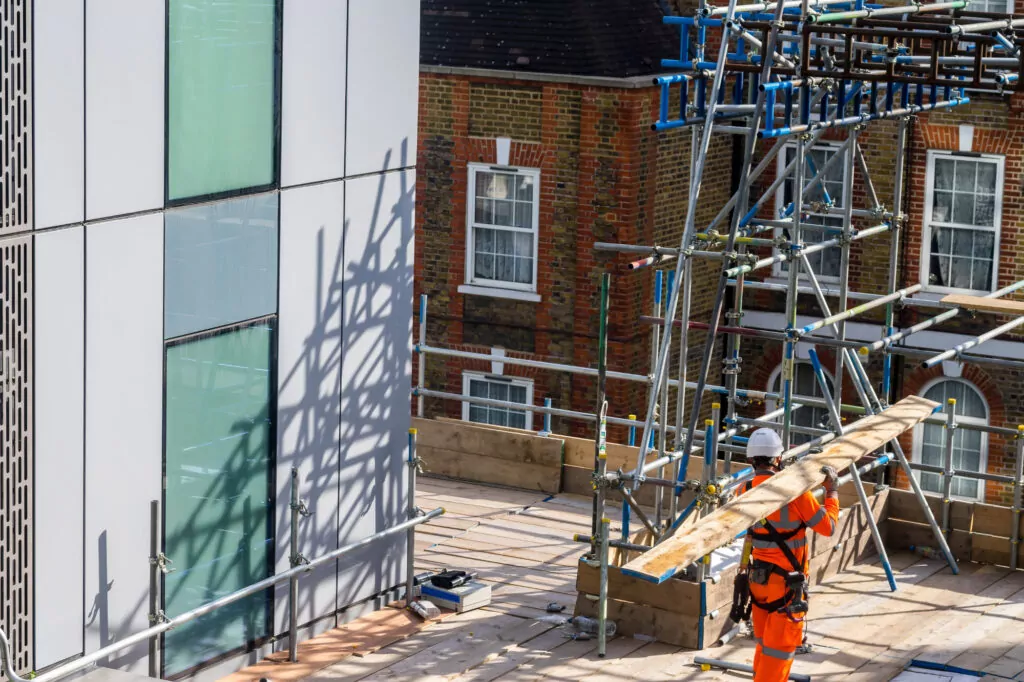
EV charging infrastructure may become mandatory in residential and residential building
New and existing buildings will be required to provide electric vehicle charging infrastructure under proposals put forward in a consultation document recently published by the Department for Transport.
The proposals will be introduced in England only, by a change to Buildings Regulations and by a change to legislation, and build on the commitments made in last year's Road to Zero strategy and the Chancellor's 2019 Spring Statement. This also reflects the UK Government's ambition for all new cars and vans to be zero emission by 2040, for a shift to net zero greenhouse gas emissions by 2050 and for homes to be future proofed for the transition to electric vehicles.
What the consultation proposes:
New residential buildings with an associated car parking space and buildings undergoing a material change of use to residential (whether in whole or part) will be required to provide a charging point with a minimum power rating of 7kW and a universal socket for each new dwelling.
For new residential buildings with more than 10 parking spaces every space will have to have a charging point.
The target is to introduce this by 10 March 2020.
Residential buildings undergoing major renovation and with more than 10 parking spaces will be required to provide cable routes to each parking space so that cables and charging points can be fitted at a later date.
In areas where significant electrical capacity reinforcement is required there will be an exemption for residential developments from providing charging points where grid connection costs exceed £3,600.
For new non-residential buildings and non-residential buildings undergoing major renovation with more than 10 parking spaces the requirement will be to provide at least one charging point and to provide cable routes for one in five parking spaces so that cables and charging points can be fitted at a later date.
The target is to introduce this change by 10 March 2020.
Existing non-residential buildings with more than 20 parking spaces will be required to provide one charging point by 2025.
This requirement will be set by legislation, introduced by March 2020, rather than by changes to Building Regulations.
With regard to the March 2020 date, the intention is that the change to Building Regulations will be published then but there will be a transition period of one year before the requirements come into force.
With regard to the 2025 date, the intention is that the relevant infrastructure should be in place by that date.
New residential buildings with an associated car parking space and buildings undergoing a material change of use to residential (whether in whole or part) will be required to provide a charging point with a minimum power rating of 7kW and a universal socket for each new dwelling.
For new residential buildings with more than 10 parking spaces every space will have to have a charging point.
The target is to introduce this by 10 March 2020.
Residential buildings undergoing major renovation and with more than 10 parking spaces will be required to provide cable routes to each parking space so that cables and charging points can be fitted at a later date.
In areas where significant electrical capacity reinforcement is required there will be an exemption for residential developments from providing charging points where grid connection costs exceed £3,600.
For new non-residential buildings and non-residential buildings undergoing major renovation with more than 10 parking spaces the requirement will be to provide at least one charging point and to provide cable routes for one in five parking spaces so that cables and charging points can be fitted at a later date.
The target is to introduce this change by 10 March 2020.
Existing non-residential buildings with more than 20 parking spaces will be required to provide one charging point by 2025.
This requirement will be set by legislation, introduced by March 2020, rather than by changes to Building Regulations.
With regard to the March 2020 date, the intention is that the change to Building Regulations will be published then but there will be a transition period of one year before the requirements come into force.
With regard to the 2025 date, the intention is that the relevant infrastructure should be in place by that date.
Exemptions:
The consultation document also sets out a series of non-financial exemptions to the requirements to introduce infrastructure.
At Foot Anstey we are experienced in advising developers, transport businesses and manufacturers in relation to electric vehicle infrastructure. If you would like to discuss this with us please contact either Christian Silk at [email protected] or Chris Pritchett at [email protected].
The consultation closes on 7th October 2019.











![Deep pockets, deep costs – Triathlon Homes v SVDP & Get Living [2024] featured image](https://www.footanstey.com/wp-content/uploads/2021/05/httpscontent.footanstey.comappuploads202006Constructing-modular-housing-1024x682.jpg)
